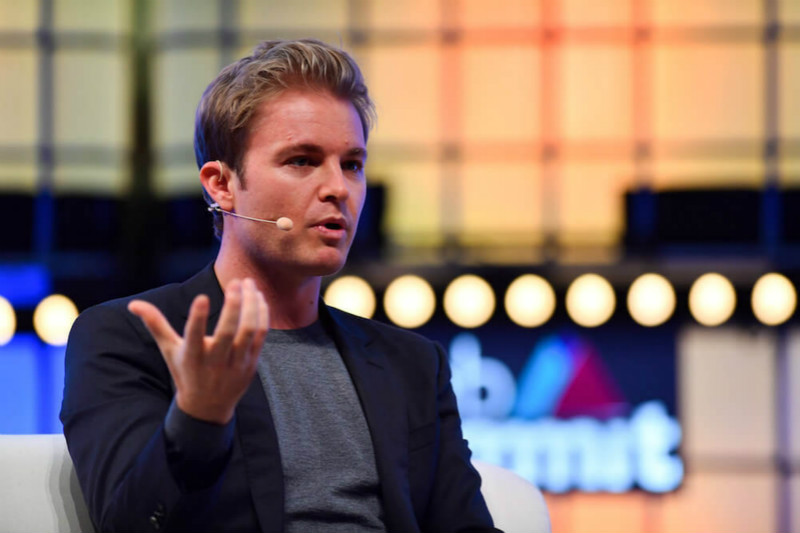Health not hustle: 9 pieces of advice from top investors
Following last year’s Web Summit, we caught up with our network of investors and asked them to share their advice for startups and ambitious entrepreneurs. From preparing for the smallest problem to checking your ego, we’ve distilled the insights they’ve shared with us ahead of our return to Lisbon for Web Summit 2019.
 |
Alexis Ohanian speaking on Centre Stage |
Alexis Ohanian, co-founder & partner, Initialized Capital
At Web Summit, Alexis gave a talk titled “What I wish a VC had told me”, so he seemed like the perfect person to ask for advice. He’s obviously spent a lot of time thinking about how to help and shape the next generation of entrepreneurs, as he had five short pieces of advice for anyone looking to build a business.
“Look for peers not mentors.”
It’s very easy to look at the people that appear on our stages and think “I’d love to pick their brain for an hour”. Alexis warns against it though. He believes that the people you should be looking to are those that are at the same stage of building a company. Work with the people on your level, because they’ve solved the problems you’re facing a few months ago, not years ago.
“Seek authenticity not authority.”
You’re not always going to be right, the sooner you accept this the easier it will be. As an early stage startup, transparency and authenticity are your brand. So don’t hide behind your authority, learn from your shortfalls and mistakes, and be honest about them.
“Operate for the short term, plan for the long term.”
So many founders are focussing on what they’re future is going to be, that they’re not looking at the things they need to solve in the short term. The trap is that there is always something to do, there’s so much happening that you need to be ruthless about prioritising your schedule for today, for this week.
“Health not hustle.”
Alexis has been speaking out against what he calls “hustle porn” for a long time. He believes that it has been driving people to burn themselves out, and its continued glorification on social media is doing a lot of damage people’s mental health. Look after yourself, and don’t be ashamed to take me-time.
“Values not friendship.”
A lot of great founding teams came together as friends first, but Alexis doesn’t believe that’s why they succeeded. The key thing to make a co-founding pairing work is to understand that you don’t just have a friendship in common, but that you share values. If you don’t, that relationship will fray. If you don't share your values with your business partner, it is not going to work regardless if you are friends.
Juliet de Baubigny, General Partner, Bond
“Great founders make all the difference.”
The founding team is the first thing investors look at. How experienced are they? Are they committed to the idea? Are they able to deal with the many setbacks to come? Your team are what get your from an idea to a viable company, so be selective when it comes to building your founding team.
Tom Stafford, Managing Partner, DST Global
“We like to go to where the consumer spends their money.”
In sport they say you should always keep your eye on the ball, for Tom that’s the money. As an investor Tom looks at what consumers are flocking to and how they’re choosing to spend their money. This simple but effective approach has landed him investments in Deliveroo and Revolut.
 |
Nico Rosberg speaking on Centre Stage |
Nico Rosberg, tech & mobility investor, Formula E
“Preparation is the key to marginal gains.”
Nico knows a thing or two about the big impact that marginal gains can have. Whether it’s business or F1 racing, it’s rare that you’ll progress in leaps and bounds. The key is to focus on incremental improvements and make sure you’re prepared to take advantage of them when you see an opportunity.
Watch Nico’s talk on “Decision making in fast paced environments”.
Trae Vassallo, co-founder and Managing Director, Defy.vc
“Early stage investment requires entrepreneurial empathy and entrepreneurial alignment.”
An entrepreneur can’t just look at the numbers and trust that they can decide if a startup will succeed or flop. Trae puts a lot of weight on what he calls “entrepreneurial empathy”, the ability to see the problem as if they’ve been in that industry their whole lives. People who truly understand the problem they are solving, understand it through spending time in an industry banging their head against a wall trying to solve that problem.
Are you an investor with an eye on Web Summit? Take a look at our investor track and see what we have in store for you this November.
Disclaimer: Sponsored content: The views expressed in the post are those of the author.


